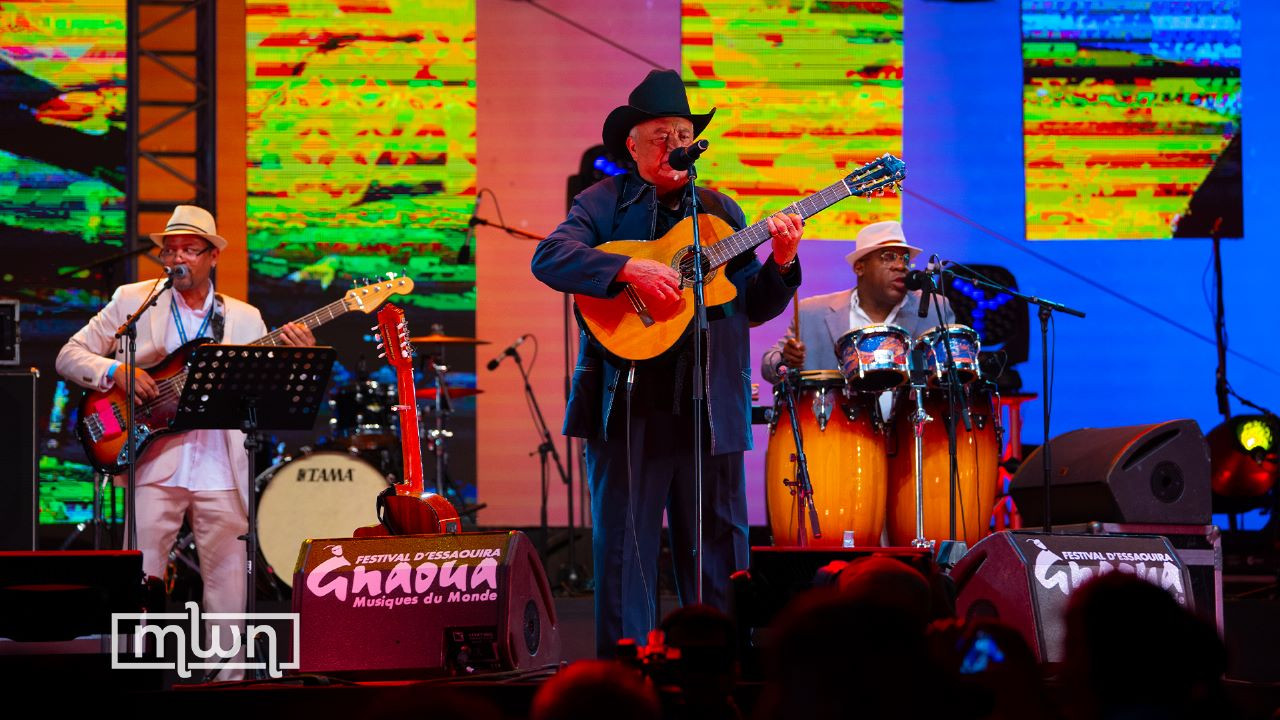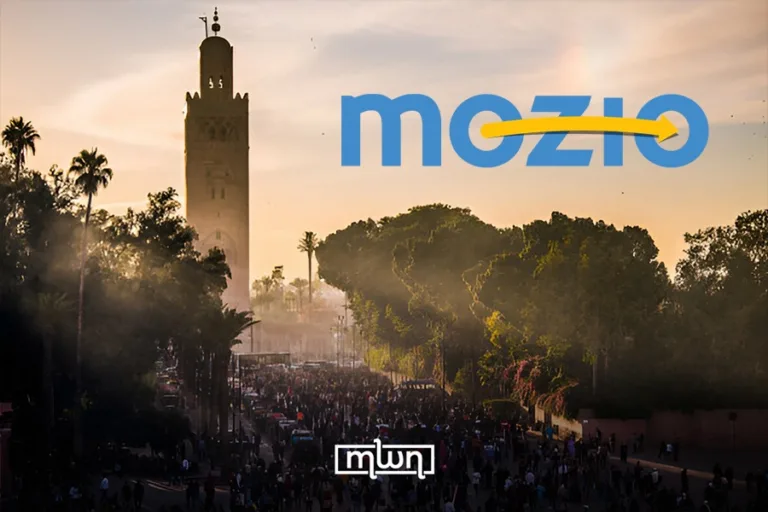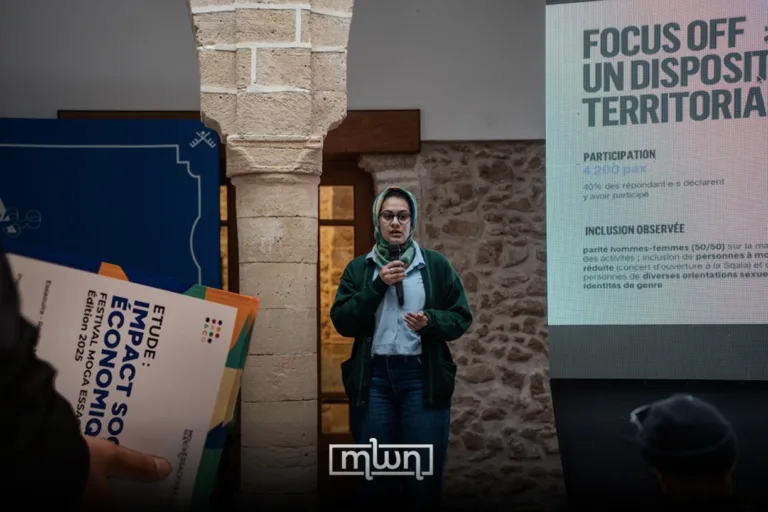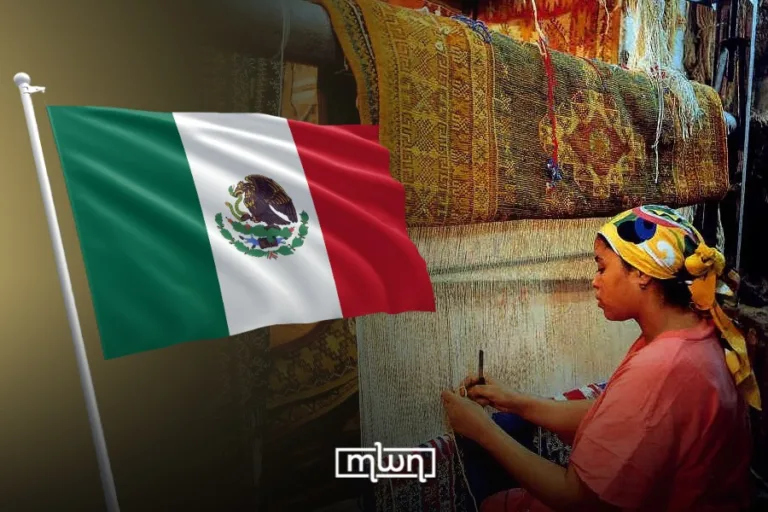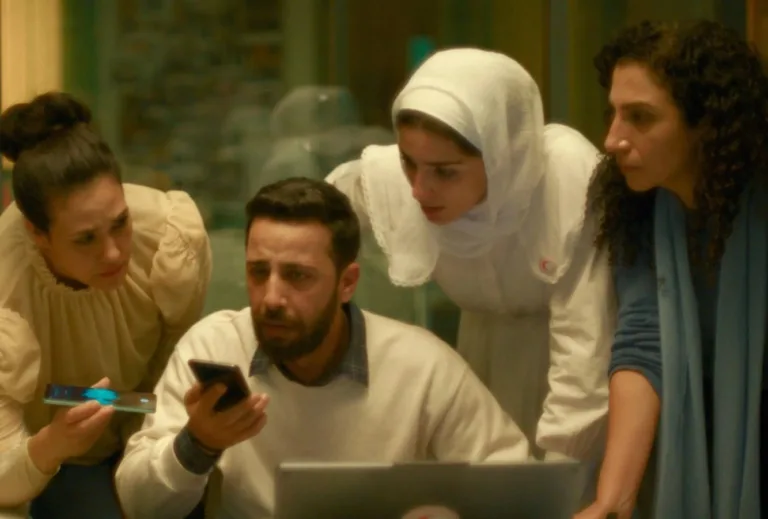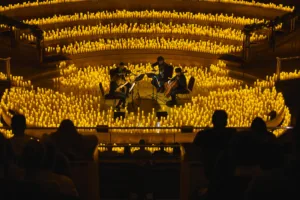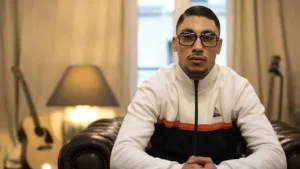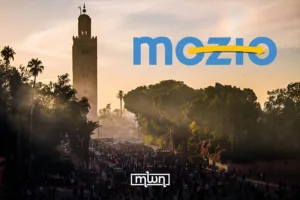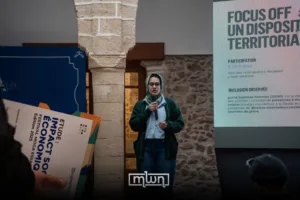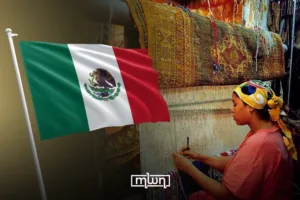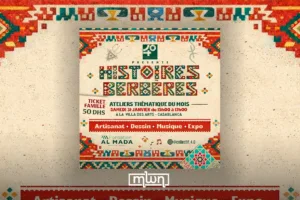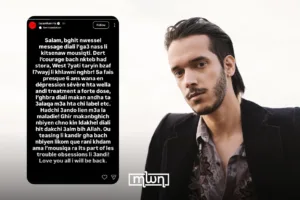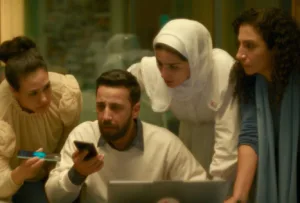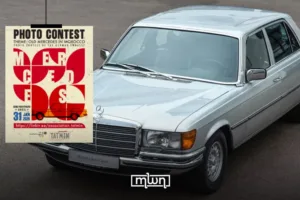Essaouira – Grammy-nominated musician Eliades Ochoa, 77, traveled over 7,000 kilometers from Cuba to perform at the Gnaoua World Music Festival, celebrating his own heritage in parallel to the festival’s celebration of Gnaoua and Moroccan culture.
“Soy Guajiro!” Ochoa loudly proclaimed as he began his performance on Friday, announcing both his pride in his roots and the titular song of his new album, Guajiro, which he released this month.
Guajiros are farmworkers, “people of the land,” as Ochoa told Morocco World News.
Gnaoua festival
Ochoa rose from his humble roots as a guajiro to world-wide fame, leading him to play on the main stage at the festival.
His popularity began with his participation in the Buena Vista Social Club beginning in 1996, a group which works to preserve traditional types of Cuban music like son, a personal staple of Ochoa.
Instead of hiding behind his new wealth, Ochoa proudly proclaims his heritage at every opportunity. His music comes from the land and the fields, from his “montanas queridas” (beloved mountains in English) to which he longs to return, as he sings in “Soy Guajiro.”
Ochoa began his performance by entering the stage with his arms held wide to welcome the crowd’s furious applause, his trademark black cowboy hat firmly planted on top of his head. His commanding presence demonstrated the confidence of a man who has been performing professionally for more than 50 years. 
Gnaoua festival
Despite an ocean separating the two continents, Ochoa said many of the elements of Cuban music are similar to rhythms he has found through his collaboration with Malian musician Toumani Diabate on the Grammy-nominated album AfroCubism.
The festival was his first exposure to Gnaoua music, and he approached his participation with the same goal of discovering new styles and expanding his skill set for his own composing.
When you listen to new types of music, “you always learn. It is always a school,” he told MWN.
His own performance transcended language barriers and transported his audience to Cuba as he created his own musical university for the crowd, or “mi grande familia”, my large family, as he continuously addressed them.
Throughout his performance, he used the breaks between songs to command his audience to “Bailarrrrrrrrrrrr!”, or dance.
The crowd loyally followed his instructions, grabbing their friends and twirling each other in approximations of Latin dance, not because they necessarily understood his Spanish, but because the driving rhythm of the congas, timbales and maracas demanded that they move.
This driving percussion formed the beating heart of the performance, pumping blood to the crooning saxophone and trumpet, dancing piano notes, and the melodies of Ochoa himself as he picked at his tres, an instrument similar to an acoustic guitar.
Along with his new pieces, Ochoa performed classic pieces from his work with the Buena Vista Social Club, like “El Carretero” and the beloved “Chan Chan” from 25 years ago, eliciting thunderous applause from the crowd.
Ochoa turned 77 on Thursday, the day before his performance. His musicians paused the performance to lead the crowd in singing “Happy Birthday” in Arabic, Spanish, and English. Ochoa addressed his old age by saying he feared he would develop heart problems from the incredible emotion emanating from the crowd.
Gnaoua festival
That emotion and an ecstatic energy flowed through the audience, his performance generating more and more momentum as he played non-stop high-energy songs, his belting rasp ringing clear over the furious rhythm of his accompaniment.
His musicians, too, gave into this infectious energy. The pianist stood up to pound on the keys as the saxophonist and trumpet player leaned together, their instruments singing into the same microphone.
Just beyond the stage, an audience member raised a Cuban flag high above the crowd, celebrating his heritage in the same way that Ochoa unabashedly demonstrates his pride for his Cuban roots throughout his discography.
His performance, sandwiched by two Gnaoua groups demonstrating traditional Moroccan culture, called on his audience to never forget where they came from, whether it be Cuba or Morocco, or any other country represented in the diverse crowd gathered from around the world.

